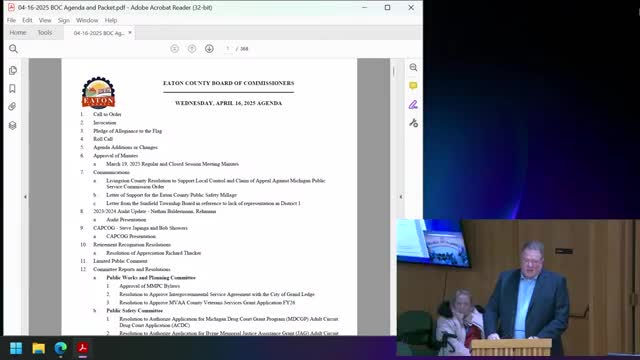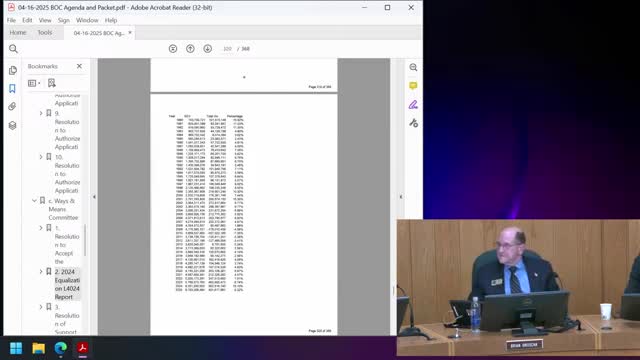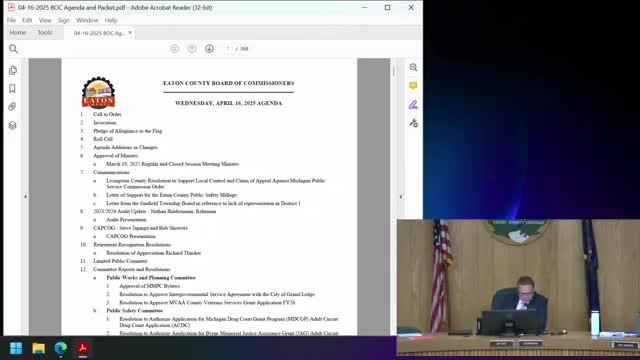Article not found
This article is no longer available. But don't worry—we've gathered other articles that discuss the same topic.

Eaton County posts clean 2023–24 audit; commissioners briefed on budget pressure and Headlee limits ahead of special budget sessions

Eaton County Commissioners approve full‑faith pledges for major drainage projects, authorize bond process for intercounty bank drain

